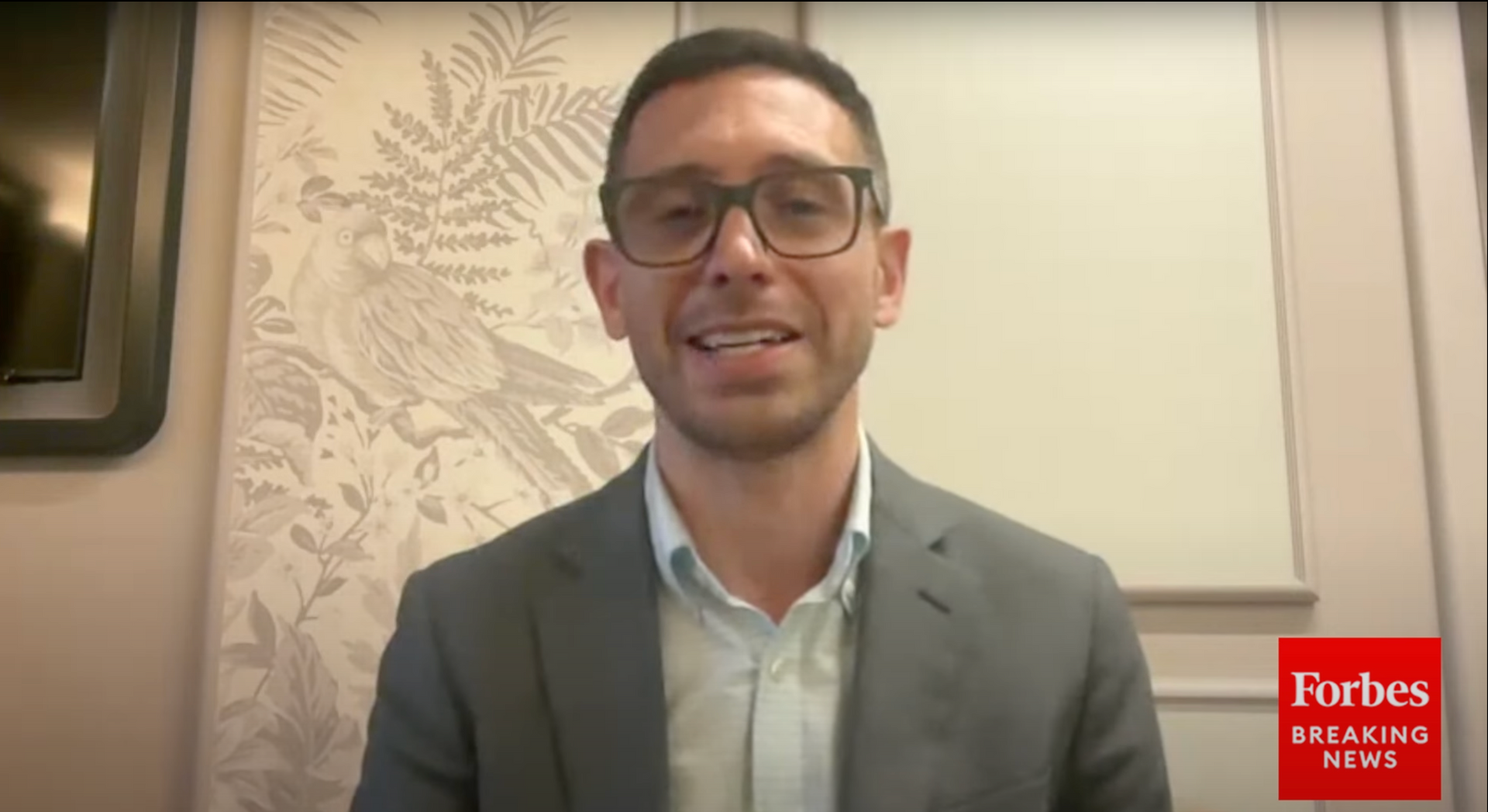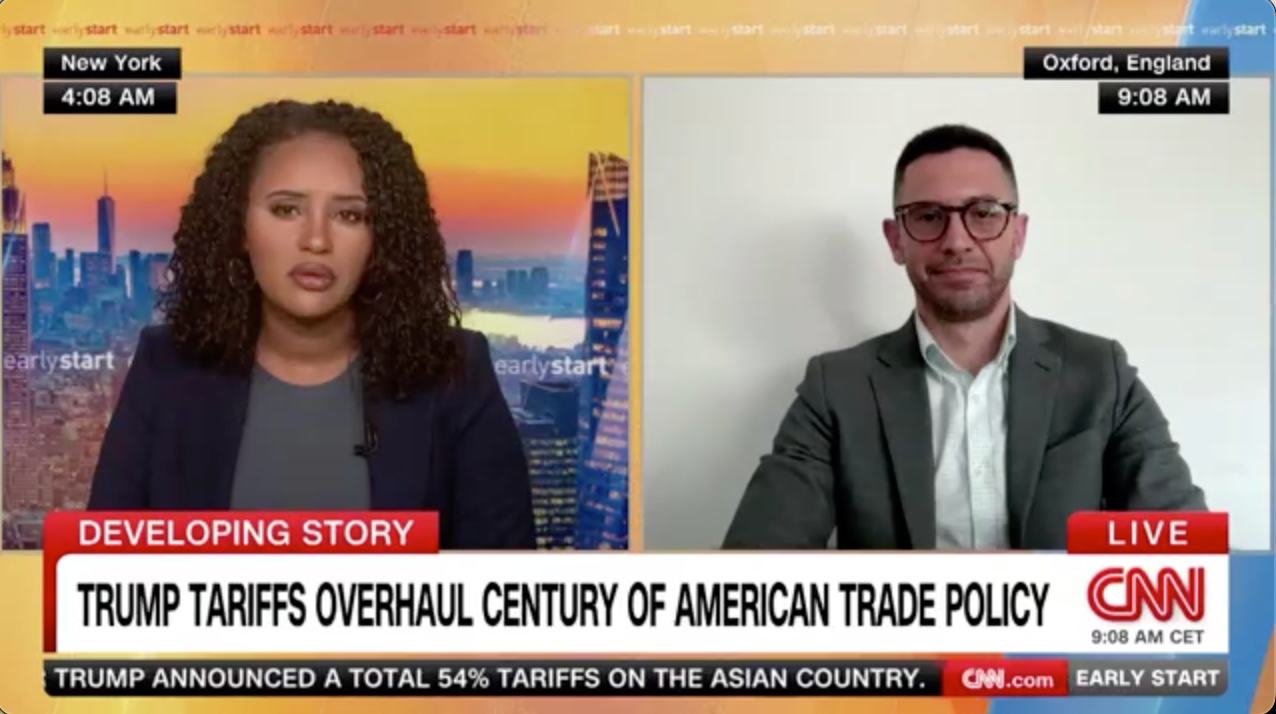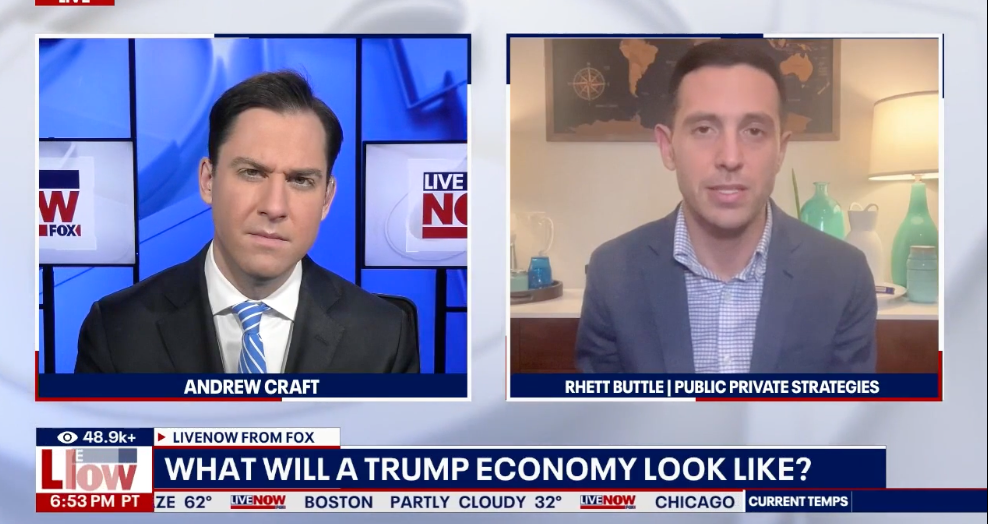The 2020 Presidential Candidate’s Guide To Earning The Small Business Vote—Part One
Rhett Buttle • July 2, 2020
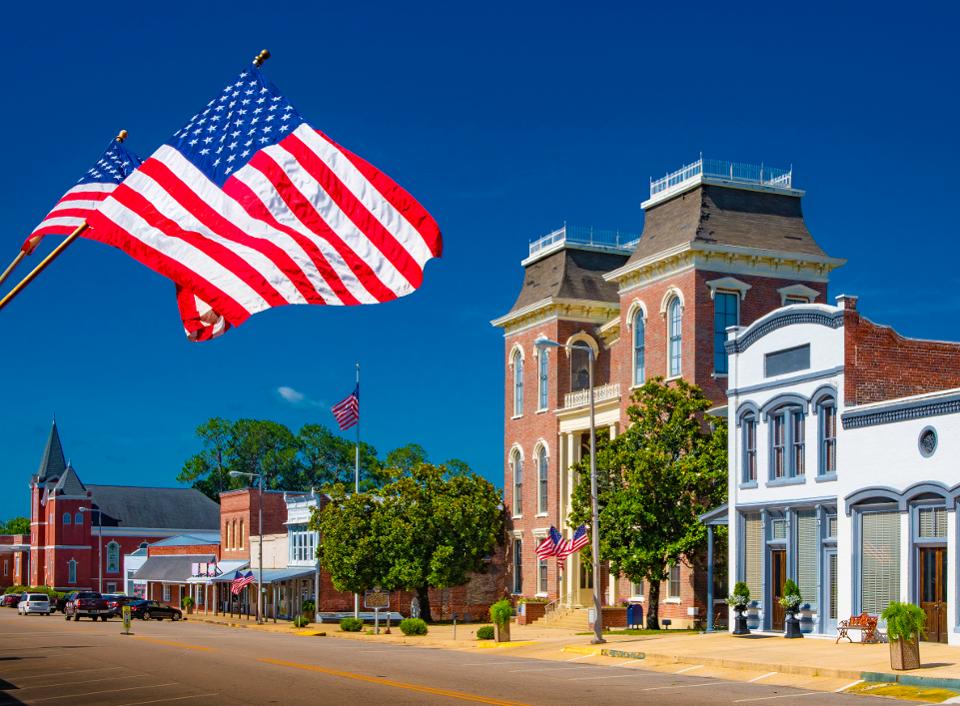
Getty
The 2020 presidential election is shaping up to be more significant than any in recent memory. To solve this nation’s greatest challenges—from ending systemic racism to recovering from the pandemic—we are going to need bold policy ideas and strong coalitions.
One constituency that will be critical for success: small business owners and their workers.
Why should the presidential candidates care about small businesses? Because they’re much more than just an applause line in a stump speech. Small businesses and their workers are vital to our economy. Prior to COVID-19, there were 30 million small businesses in this country, 43% of them in low-income communities. They represented more than 90% of all businesses and employed almost half of America’s workforce. Without them, there is no path
out of the recession. They are more important to the fabric of their communities than ever.
On a pragmatic level for candidates, given its size and reach across the country, the small business constituency can play a significant role in deciding the election. The bad news? Right now, they’re disenchanted with our political leadership. A survey released last week by Small Business for America’s Future found that 84% of respondents say our leaders favor big business.
To win the support of Main Street, candidates need more than an economic plan, they also need a small business plan. Here are three priorities any candidate that cares about small business must include in their election platform (I’ll offer three more in Part II on small business and presidential politics next week):
1. Rebuilding the small business economy.
We know the Paycheck Protection Program (PPP) will not be sufficient to save Main Streets across the U.S. from the ravages of the pandemic. This was a program designed to help weather a short-term closure of business. Yet, as businesses slowly reopen, COVID-19 cases continue to spike—and it seems likely we will have to endure a period of depressed consumer demand as people cautiously test the waters. That means there are several longer-term reforms
needed to help small businesses survive. These include no-strings-attached grants to cover small business’ costs related to reopening. They should also include policies that encourage entrepreneurship and make it easier
to become a small business owner. For example: incentivizing investment in startups, especially those that are women-, minority- or veteran-owned; including tools on entrepreneurship in workforce development programs; and creating tax incentives for small business ownership (more on that below). If they are to spur our nation’s economic recovery, small businesses cannot be forgotten once the immediate
crisis passes.
2. Tax reform that favors small businesses.
The 2017 Tax Cuts and Jobs Act was business-friendly...if your business was a large corporation. While big businesses got a 40% cut on their tax rate, small businesses got a much smaller, temporary deduction. Polling
by Gallup found that only 25% of small business owners said the tax law had a positive impact on their business.
There are a number of common sense tax policies that could help small businesses grow and hire. Chief among them, the next administration could work with Congress to enact a tax credit for small business owners hiring their first employees; in fact, legislation on this issue has already been introduced
by Sen. Ron Wyden (D-OR). The president could also equalize the tax rate that large and small businesses pay. Finally, they could make the first $25,000 in small business profit tax free.
3. Access to capital and lending protections. Small businesses—especially those owned by women and people of color—have always had problems accessing credit; yet affordable financing is crucial to small business growth and, now more than ever, small business survival. Unfortunately, there are unscrupulous lenders willing to fill credit gaps with high-priced products that have hidden fees and opaque terms, trapping small business owners in cycles of debt. As desperation grows to save small business, many entrepreneurs may be lured in by predatory loans without realizing the trouble they are getting into. Unlike consumer loans, there is no federal law requiring disclosure of terms for small business financing. Policy leaders should pass truth-in-lending laws that require disclosure of APRs, total loan costs, and broker fees. Campaigns can start by looking at the Small Business Borrowers’ Bill of Rights
developed by the Responsible Business Lending Coalition. The good actors who voluntarily sign on to this and other initiatives, such as SMART box, show that truth in lending is possible. To help ensure different groups of business owners are getting equal access to loans, candidates can push to implement Section 1071 of the 2010 Dodd-Frank Act requiring banks to report demographic lending data. This will create transparency about which small business borrowers receive loans and which don’t.
A candidate serious about helping small businesses can make big advances by protecting them from predatory lenders and advancing equity in lending.
By pledging concrete policy actions across these three priorities, candidates will demonstrate a commitment to the highly important small business community. But these economic policies are just the beginning; next week, in Part II of this article, we’ll talk about how candidates can support small businesses through affordable healthcare, incentives for childcare, and real engagement. No matter the outcome of this election, small businesses must be heard. The future of our nation depends on listening to their urgent concerns and enacting policy solutions that position them to thrive.
This piece originally appeared in Forbes on June 25, 2020. You can view it online here.
Rhett Buttle is the founder of Public Private Strategies, Executive Director of the Small Business Roundtable, Founder of the NextGen Chamber of Commerce, a Senior Fellow at The Aspen Institute, and a contributor for Forbes.
WANTING MORE NEWS? SIGNUP TODAY
Contact Us
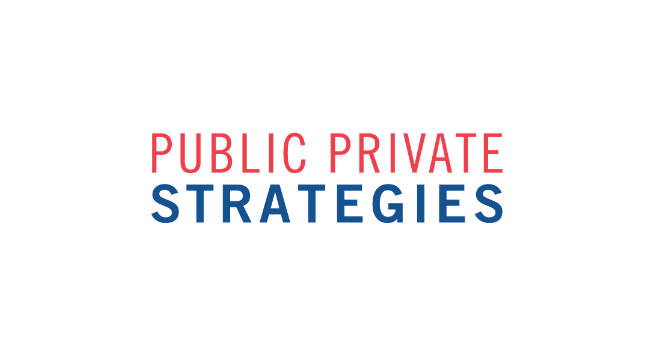
*This article was written by Scripps News Staff. President Joe Biden announced that the government will cover 100% of Hurricane Helene cleanup costs for the next several months to pay for the urgent work to clear the mud, remove downed trees and provide temporary housing. The federal support comes as residents in multiple Southeastern states are still struggling to return to normal following last week’s storm that killed over 200 people. Katie Vlietstra Wonnenberg, a small business advocate and political strategist, said it is going to take a significant amount of time to finish the cleanup, no matter how hard the federal government works. Read the entire piece on Scripps News.

WASHINGTON, D.C. – This month marks the anniversary of two pivotal pieces of legislation that are helping fuel a small business boom, the CHIPS & Science Act and the Inflation Reduction Act. Over the past four years, there has been a historic growth of American entrepreneurship across the country, with over 18 million new business applications filed, each one an act of hope and optimism in our economic future. This small business boom is fueled by investments like the Inflation Reduction Act and the CHIPS & Science Act. Rhett Buttle, Founder and CEO of Public Private Strategies, released the following statement: “As we mark the two-year anniversaries of the CHIPS & Science Act and the Inflation Reduction Act, the positive impact across the business landscape, and particularly for entrepreneurs, is unmistakable. The CHIPS & Science Act is fueling entrepreneurship opportunities by dedicating over $50 million to help develop new ideas and technologies to strengthen domestic semiconductor production and supply chain. “The Inflation Reduction Act has helped lower costs for workers and consumers, driving up demand for small businesses across the country. The healthcare provisions of the Inflation Reduction Act alone are saving millions Americans an average of $800 per year on health insurance premiums. These investments have helped fuel America’s small business boom, including a record 18 million new small business applications filed over the past four years. “We have more work to do to address the issues that business owners have consistently said are their top priorities, from lowering health care and prescription drug costs to expanding and streamlining contracting opportunities for small employers to strengthening and protecting American democracy . We remained committed to working with business leaders to address these challenges and ensure these investments are implemented effectively to grow economies and support communities all across the country.” ### About Rhett Buttle Founder & CEO, Public Private Strategies President, Public Private Strategies Institute Senior Fellow, The Aspen Institute Rhett Buttle is an entrepreneur, advocate, and one of the most trusted leaders at the intersection of business and policy in Washington, DC. He has worked for President Biden, Vice President Harris, President Barack Obama, Secretary of State Hillary Clinton, and Governor Arnold Schwarzenegger in government and campaign roles. Rhett is the founder of Public Private Strategies (PPS) and President of the Public Private Strategies Institute (PPSI), which works to bring together the public and private sectors to build coalitions, activate campaigns, and create strategic partnerships to drive policy and market outcomes. In these roles, he advises leading policy makers, foundations, nonprofits, and corporations. In addition to PPS and PPSI, he has helped found the Small Business Roundtable, Small Business for America’s Future, and the Next Gen Chamber of Commerce. He is also a Senior Fellow at the Aspen Institute and a regular contributor to Forbes, where he writes on the intersection of business, policy, and politics. Rhett has also been featured in The New York Times, CNN, The Wall Street Journal, and several other business publications. About Public Private Strategies Public Private Strategies (PPS) creates opportunities where the public and private sectors meet. We bring together diverse allies including foundations, associations, corporations, small businesses, and entrepreneurs to solve pressing societal challenges. By harnessing the power of the private sector, we build coalitions, activate campaigns, and create strategic partnerships to drive desired policy and market outcomes. Learn more at www.publicprivatestrategies.com .

WASHINGTON, D.C. – This month marks the anniversary of two pivotal pieces of legislation that are helping fuel a small business boom, the CHIPS & Science Act and the Inflation Reduction Act. Over the past four years, there has been a historic growth of American entrepreneurship across the country, with over 18 million new business applications filed, each one an act of hope and optimism in our economic future. This small business boom is fueled by investments like the Inflation Reduction Act and the CHIPS & Science Act. Rhett Buttle, Founder and CEO of Public Private Strategies, released the following statement: “As we mark the two-year anniversaries of the CHIPS & Science Act and the Inflation Reduction Act, the positive impact across the business landscape, and particularly for entrepreneurs, is unmistakable. The CHIPS & Science Act is fueling entrepreneurship opportunities by dedicating over $50 million to help develop new ideas and technologies to strengthen domestic semiconductor production and supply chain. “The Inflation Reduction Act has helped lower costs for workers and consumers, driving up demand for small businesses across the country. The healthcare provisions of the Inflation Reduction Act alone are saving millions Americans an average of $800 per year on health insurance premiums. These investments have helped fuel America’s small business boom, including a record 18 million new small business applications filed over the past four years. “We have more work to do to address the issues that business owners have consistently said are their top priorities, from lowering health care and prescription drug costs to expanding and streamlining contracting opportunities for small employers to strengthening and protecting American democracy . We remained committed to working with business leaders to address these challenges and ensure these investments are implemented effectively to grow economies and support communities all across the country.” ### About Rhett Buttle Founder & CEO, Public Private Strategies President, Public Private Strategies Institute Senior Fellow, The Aspen Institute Rhett Buttle is an entrepreneur, advocate, and one of the most trusted leaders at the intersection of business and policy in Washington, DC. He has worked for President Biden, Vice President Harris, President Barack Obama, Secretary of State Hillary Clinton, and Governor Arnold Schwarzenegger in government and campaign roles. Rhett is the founder of Public Private Strategies (PPS) and President of the Public Private Strategies Institute (PPSI), which works to bring together the public and private sectors to build coalitions, activate campaigns, and create strategic partnerships to drive policy and market outcomes. In these roles, he advises leading policy makers, foundations, nonprofits, and corporations. In addition to PPS and PPSI, he has helped found the Small Business Roundtable, Small Business for America’s Future, and the Next Gen Chamber of Commerce. He is also a Senior Fellow at the Aspen Institute and a regular contributor to Forbes, where he writes on the intersection of business, policy, and politics. Rhett has also been featured in The New York Times, CNN, The Wall Street Journal, and several other business publications. About Public Private Strategies Public Private Strategies (PPS) creates opportunities where the public and private sectors meet. We bring together diverse allies including foundations, associations, corporations, small businesses, and entrepreneurs to solve pressing societal challenges. By harnessing the power of the private sector, we build coalitions, activate campaigns, and create strategic partnerships to drive desired policy and market outcomes. Learn more at www.publicprivatestrategies.com .

